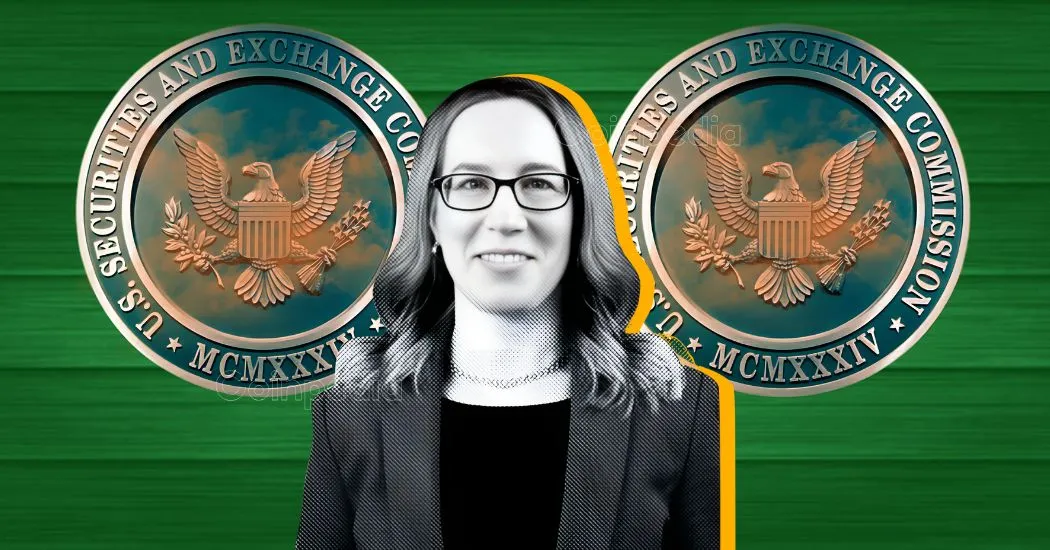The SEC’s First Crypto Task Force Meeting: What to Expect from the Future of Digital Asset Regulation
On Friday, the U.S. Securities and Exchange Commission (SEC) held its inaugural public meeting focused on cryptocurrency, an event that has generated significant attention within the financial and technological sectors. The gathering of experts aimed to dissect how existing securities laws are applicable to digital assets, setting the stage for a critical conversation about the future of regulation in this burgeoning industry. The backdrop of this discussion was the Trump administration’s push for changes in cryptocurrency regulation, making the atmosphere lively and filled with differing opinions.
Understanding the Core Debate: Should Crypto Follow Stock Rules?
At the heart of the meeting lay a vital question: Should cryptocurrencies be subjected to the same regulatory framework as traditional stocks, or is it time for a distinct set of regulations tailored specifically for digital assets? This query ignited vigorous debate among industry leaders, legal experts, and SEC officials, each presenting compelling arguments that could have profound implications for how cryptos are traded, regulated, and safeguarded.
Voices from the Meeting: Key Figures in the Discussion
Among the attendees were prominent figures in the financial and cryptographic sectors, including John Reed Stark, a former SEC official; Miles Jennings, a representative from venture capital firm Andreessen Horowitz; and Troy Paredes, another former SEC Commissioner. The task force’s primary objective is clear: to formulate more transparent rules for the rapidly expanding crypto landscape, a goal that many believe is critical for fostering innovation while ensuring investor protection.
The Case for Customized Regulations: Should Crypto Have Its Own Rules?
One of the most heated discussions revolved around whether the existing securities laws are adequate for cryptocurrencies or if a separate regulatory framework is necessary. Proponents of customized regulations, like Miles Jennings, argue that the SEC should maintain a "technology-neutral" stance, highlighting the unique features of blockchain technology. Jennings believes that systems such as Ethereum operate fundamentally differently from conventional stock investments, implying that the rules governing them should also differ.
Conversely, SEC Commissioner Caroline Crenshaw voiced her concerns about creating specialized rules for crypto. She indicated that doing so could diminish oversight and enable digital currencies to sidestep essential financial regulations designed to protect investors.
John Reed Stark’s Perspective: Existing Laws Are Enough
Former SEC official John Reed Stark offered a counterpoint to the debate, defending the view that the current Securities Act of 1933 and 1934 sufficiently covers the regulation of digital assets. Stark insists that crypto should consistently be classified as securities, emphasizing that individuals investing in cryptocurrencies are not merely collectors but investors seeking potential returns. He articulated that the SEC’s mission centers on investor protection, asserting that the existing legal framework is adequately equipped to fulfill that role.
Stark noted, “The volume of case law has developed so quickly because of all these crypto firms. They went for this sort of delay, delay, delay, idea, and they hired the best law firms in the world, and these law firms all fought the SEC with incredible briefs.” His remarks underscored the legal complexities that have arisen as the crypto industry evolves.
Stark’s History of Criticism: A Vocal Opponent of Crypto
John Reed Stark’s criticism of the crypto industry isn’t a new development. His history of outspoken remarks on the topic includes a controversial analogy he made in February 2024, comparing a sponsorship deal involving the Dallas Mavericks and crypto firm Voyager to aligning with a "heroin manufacturer." This assertion fueled criticism, with billionaire investor Mark Cuban dismissing Stark’s comment as an example of "crypto derangement syndrome."
Stark’s perspective suggests that he views the risks associated with digital assets as potentially catastrophic, aligning his stance with stringent regulatory enforcement. It appears the friction between regulators and the crypto sector will not ease anytime soon, a sentiment echoed by both Stark’s critical approach and the challenges presented during this task force meeting.
Continual Developments: The Future of Crypto Regulation Remains Uncertain
The discussions held during the SEC’s first crypto task force meeting indicate a significant crossroads in how cryptocurrencies may be governed in the United States. The stakes are high, and the outcomes could radically alter the landscape for how digital assets are traded and regulated. As the debate continues, it remains crucial for stakeholders—from investors to innovators—to stay informed and engaged with the rapidly evolving narrative surrounding crypto regulation.

